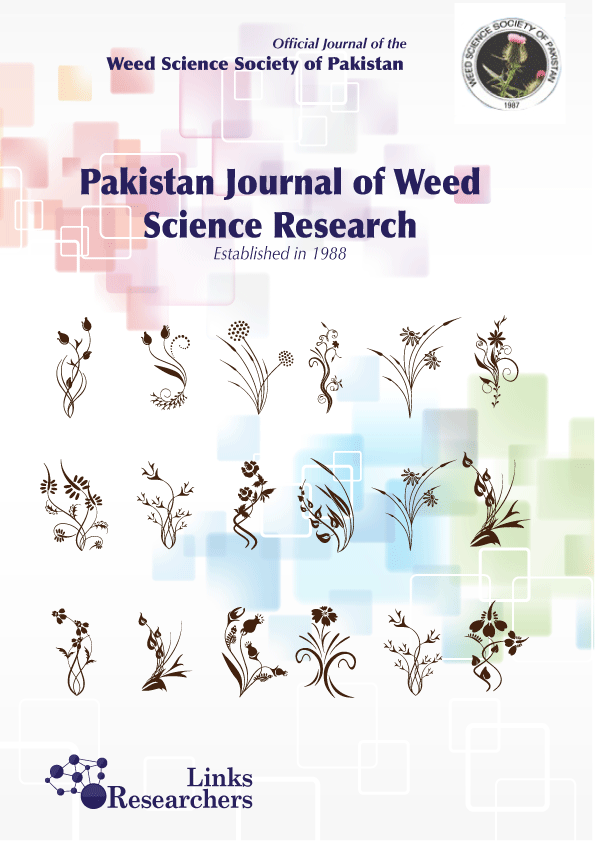IMPACT OF WEEDS MANAGEMENT PRACTICES ON WHEAT PRODUCTIVITY
IMPACT OF WEEDS MANAGEMENT PRACTICES ON WHEAT PRODUCTIVITY
Muhammad Nasir Mazhar1, Muhammad Arif*, Naeem Akhtar1 and Muhammad Shafiq1 and Muhammad Yousaf1
ABSTRACT
Unwise use of herbicides has resulted in environmental and health problems for human beings as well as for animals. Moreover, its frequent application also developed resistance in some weed species against the herbicides. Therefore, a field experiment was planned to assess the effect of multi-approached weed suppression in wheat at Reclamation Research Station, 7/3-L Ahmad Pur Sial District Jhang during winter 2019-20. Experimental treatment was comprised of two wheat cultivars i.e. Ujala 2016 and Faisalabad 2008 and seven weeds control approaches i.e. hand weeding, organic mulching, eucalyptus extract, neem extract, clodinafop, bromoxynil + MCPA and clodinafop + bromoxynil + MCPA including control. Results of the experiment showed that hand weedings, combined application of clodinafop + bromoxynil + MCPA and mulching significantly reduced the weeds density, fresh and dry weight of weeds. However, covering the soil surface with the organic mulch may have a great impact on the growth and yield-contributing attributes, hence produced maximum grain yield.
To share on other social networks, click on any share button. What are these?





